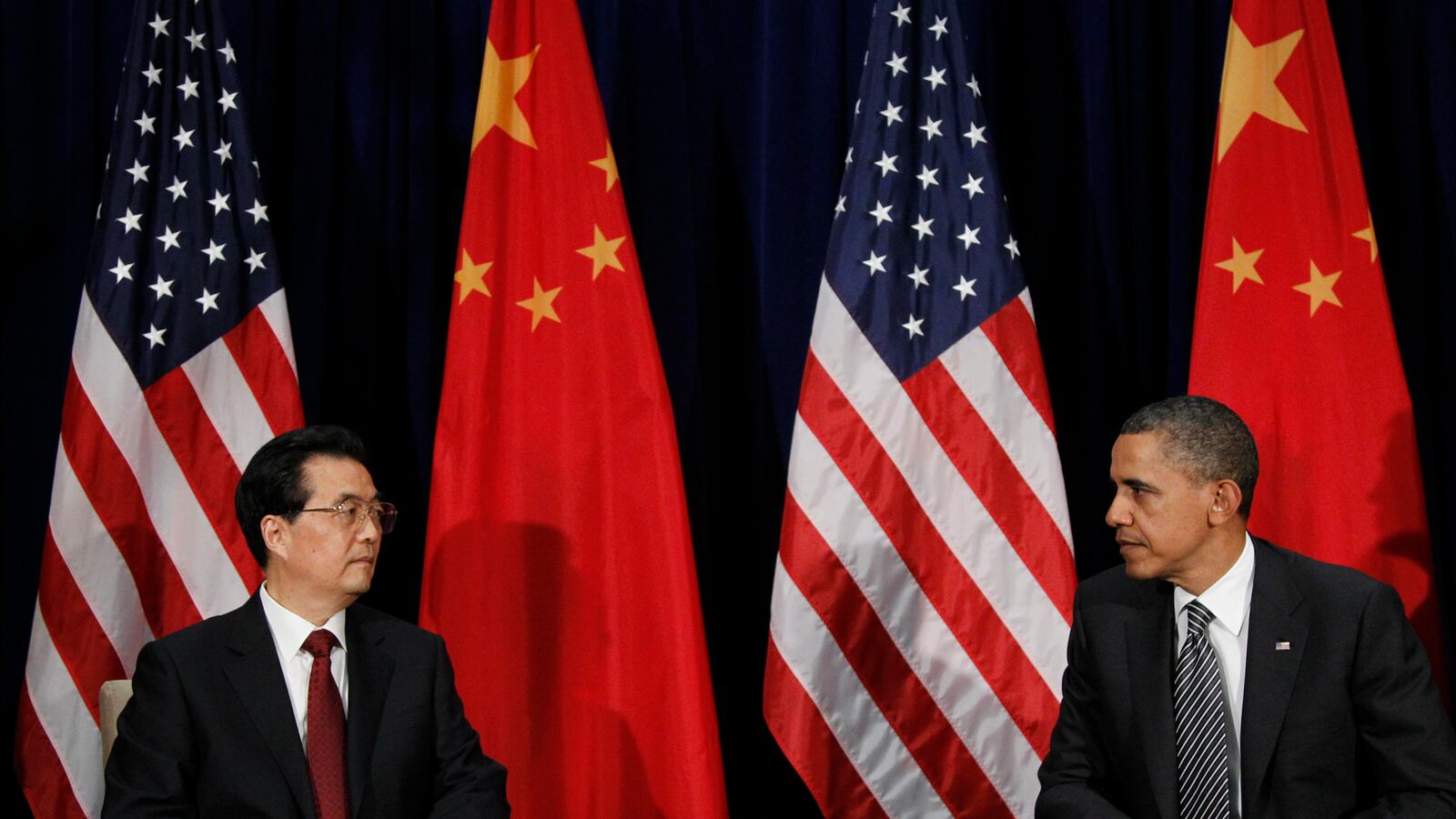Many of those who watch U.S.-China relations have long hoped the two countries could have “a breakthrough”—or some kind of dramatic new agreement that signaled a recognition that our bilateral relations require bold action to make the ways we have been interacting comport with the reality of our radically changed relative power and influence balance.

In the Analects, Confucius emphasized that sometimes language needed “rectification” so that it better comported with the things it sought to describe in reality. “If names be not correct, language will not be in accordance with the truth of things,” he admonished. “And if language is not in accordance with the truth of things, then affairs cannot be successfully carried out.”
U.S.-China relations could certainly stand a little Confucian “rectification.” In so many ways, the manner of our interaction has fallen so radically out of sync with the problems that confront us. It is perhaps a recognition of this fact that has helped make so many Americans and Chinese look back on the 1972 Nixon-Kissinger visits with Mao Zedong and Zhou Enlai with such nostalgia. That was the last time the U.S. and China had a breakthrough that truly transformed the nature of our relationship. Ever since, we have been left yearning for our leaders to somehow find a way to again transcend differences, recognize our growing common interests, and begin to collaborate in a new and more active way.
Unfortunately, we have had a very complex history, with different political systems and opposing ideologies and are thus divided by a deep mutual suspicion. Even as our two economies have become ever more intertwined, Washington and Beijing have nonetheless been able to maintain more than a reasonably functional level of tolerance. Though the relationship has recently become more fraught than ever, we still dream on, entertaining hopes that somehow, someday, some combination of leaders will be able to find the magic key, turn it in the collective lock, and open an enchanting doorway to a more collaborative relationship.
Now, as President Xi returns home from the Caribbean and Latin America, he and President Obama have managed to grab a few informal days together at Walter Annenberg’s former estate, Sunnylands, in Rancho Mirage, California. And once again fantasies of a breakthrough are proliferating.
There are myriad difficult issues facing Sunnylands’s visitors. The toughest ones to solve are computer hacking; territorial island disputes with Japan, the Philippines, Vietnam, et al.; human-rights questions; and relations with Tibet. But there are a few issues where there is now a growing sense of convergence: Taiwan has become far less contentious; China has become much more exasperated with North Korea and more willing to consider sanctions; it is participating far less disruptively in certain cases of humanitarian intervention; military-to-military relations have become more cordial; and Beijing has even agreed to begin formal discussions on cyberattacks.
Despite this very mixed record, it is important to remind ourselves that electrifying breakthroughs—such as the ones effected by Nixon and Kissinger in 1972 in China or Richard Holbrooke with Slobodan Milosevic in 1998 in Bosnia—are not usually the way history progresses. Instead of great leaps forward, it tends to move haltingly in grudging increments. Somewhat modest expectations for the summit are prudent, if not correct. This does not mean, however, that the meeting will be worthless. If anything of consequence is ever to be accomplished by way of recalibrating how our two countries relate to each other, it will only be after a certain new modicum of trust between the men at the top. This is a process that will not only take time, but special circumstances, namely, quality time together, a commodity that is very hard for our leaders to carve out of their fast-paced lives.
It is also worth remembering that Xi Jinping is a very different person than his predecessor, Hu Jintao, who remained quite elusive to U.S. leaders to the end. (In a decade at China’s helm, he never gave a single interview to a foreign correspondent!). Xi, on the other hand, is someone whose measure we have not yet had a chance to take. But stripped of the protective armor of protocol, state banquets, 21-gun salutes and motorcades, the two-day experience at Sunnylands may yet reveal him to be a more approachable and direct person. Indeed, the fact the Xi is abjuring the pomp and circumstance of a Washington state visit may suggest someone who is more self-confident, practical, and down-to-earth, someone who does not need his ego curried by the niceties of a full-fledged state visit.
In any event, if there is a reset button to be found, it will doubtless reveal itself more readily at an informal setting like Sunnylands, where the two leaders will be sequestered without neckties and suits, or armies of security guards and functionaries. There, they will have a chance to spend two whole days together in a congenial atmosphere in what will be an interesting litmus test for China’s new leader. Just by accepting such a venue for his first official meeting with Obama, Xi reveals himself as someone who is at least willing to dispense with the trappings of protocol and—we may hope—someone willing also to roll up his sleeves in a more informal way to see if he can forge a new and pragmatic kind of partnership with his American counterpart.
And wouldn’t it be ironic if Obama, who is paralyzed in so many ways back in Washington, ended up finding his Chinese counterpart a more flexible and willing partner than his erstwhile Tea Party and Republican counterparts back in our nation’s capital? It would, indeed, be a strange irony if Xi and Obama left Sunnylands with smiles on their faces, after establishing a new rapport, if not some general agreement to step up the level of cooperation on such issues as climate change, economic growth, and the need to rein in North Korea’s growing nuclear capacity.





